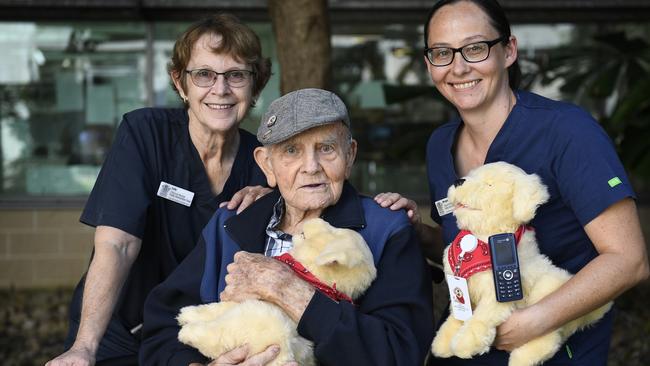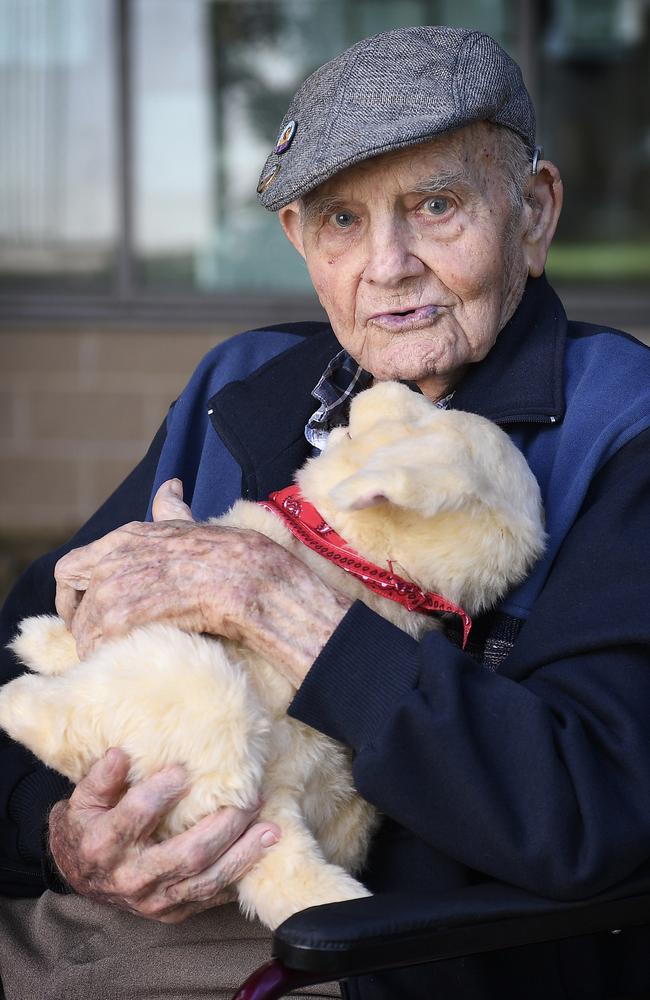Future Townsville: Townsville University Hospital using robot puppies in dementia treatment
Townsville University Hospital’s use of robot puppies in the fight against frailty is having a paws-itive impact on the lives of dementia patients.

Townsville
Don't miss out on the headlines from Townsville. Followed categories will be added to My News.
Townsville University Hospital’s use of robot puppies in the fight against frailty is having a positive impact on the lives of dementia patients.
TUH frailty intervention team clinical nurse Judith Mercer said companion pets like Lewy the robot dog were a powerful tool to help care for patients living with Alzheimer’s disease or dementia.
She said animals, even mechanical ones, acted as a calming influence and a “form of diversional therapy”.
“Research shows they positively impact patients’ anxiety and behaviour,” she said.
“Companion pets can have such a positive impact on elderly patients, especially those who lose their pets when they go into an aged-care facility or hospital.”

The intervention team work to identify and support patients in the older aged bracket who might be at risk of serious injury, and has even reached out beyond the hospital bounds in the past to support aged care centres and other residential areas.
Ms Mercer said Keith Griffiths, 95, who transitioned to aged care in 2023 after a serious stroke, was the second person to be gifted a companion dog through the team and Brighter Lives, also known as the Townsville Hospital Foundation.
Keith’s daughter Leeanne Griffiths said the adorable robotic pup brought back happy memories for her father who had dogs and other pets for most of his life.
“It has been wonderful to see the change in Dad and Lewy has settled him down considerably – much like his old self,” she said.
“After seeing Dad with Lewy, I understand how these companion dogs can lift morale, assist in reducing aggressive behaviour and how they also help the nurses by settling the patients.”
Brighter Lives board chair Alicia Fowles said it had funded three companion dogs for the frailty team and launched a pay-it-forward initiative for community members to support the purchase of robot pups for patients across the region.
“It is a small thing, but it can have such a profound difference to a patient with Alzheimer’s disease or dementia,” she said.
“Brighter Lives is proud to support the frailty intervention team’s important work caring for our region’s older patients and help provide comfort while they spend time in hospital.”
TUH’s frailty intervention team provides aged care residents the choice of receiving emergency care at home and liaises with clinical teams in the hospital to support older or frail patients.
You can help Brighter Lives give a companion dog to those who need one by donating online: www.brighterlives.org.au/payitforward.
More Coverage
Originally published as Future Townsville: Townsville University Hospital using robot puppies in dementia treatment





